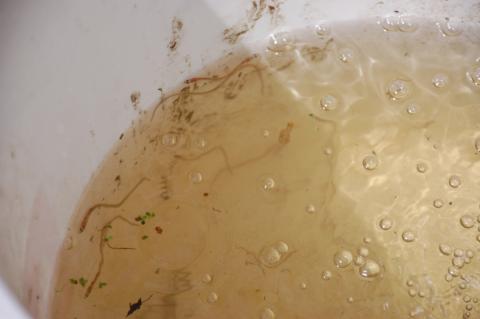Alison Watts, Civil and Environmental Engineering, UNH (603.862.0585; alison.watts@unh.edu)

Environmental DNA (eDNA), or DNA present in an environmental sample, is emerging as a powerful tool to detect species present in an ecosystem without having to actually capture and identify individual organisms. Fish, invertebrates, and other animals shed DNA through fragments of tissue, reproductive and waste products into the environment they live in. Researchers can identify which species are present by extracting and analyzing the DNA in water or sediment samples.
This project will design and implement a pilot eDNA monitoring program in N.H. streams and estuaries. Anadromous fish travel from the oceans to New England mountain streams, but their movements are increasingly restricted by tidal crossings such as dams, bridges, or culverts. Understanding how crossings impact species movement and diversity is a crucial element to effectively mitigating and restoring habitat while supporting societal needs for roads and other development. This project will develop protocols and recommendations for the appropriate use of eDNA in coastal monitoring programs, using American eel as a pilot species, with potential application to other estuarine fish.
Principle Investigator

Alison Watts, Ph.D.
Research Assistant Professor, Civil and Environmental Engineering, UNH
Contact Dr. Watts
Alison.Watts@unh.edu
Project Funding Cycle
2018-2019 NH Sea Grant Biennial Research Funding